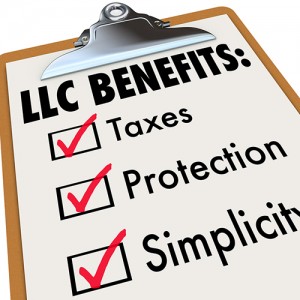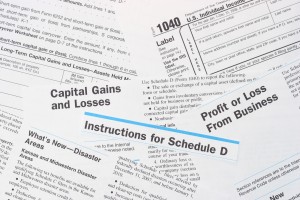 People always ask me, “Should I be an LLC or an S corporation”, and my answer is always the same, “It depends”. It’s as simple as that, it does depend on each individuals unique situation. LLC’s and S corps are similar in that they both provide limited liability protection to the members or shareholders. Both entities are also what’s called a “pass-through” entity, meaning the income is passed through to the owners and reported on the owners’ personal income tax return. This eliminates the double taxation issue incurred by C corporations.
People always ask me, “Should I be an LLC or an S corporation”, and my answer is always the same, “It depends”. It’s as simple as that, it does depend on each individuals unique situation. LLC’s and S corps are similar in that they both provide limited liability protection to the members or shareholders. Both entities are also what’s called a “pass-through” entity, meaning the income is passed through to the owners and reported on the owners’ personal income tax return. This eliminates the double taxation issue incurred by C corporations.
An LLC offers ease of creation and flexibility down the road. There are less restrictions on ownership, structure and reporting. An LLC allows for profits and losses to be split in a manner other than by ownership units. But you may end up paying more in employment taxes as an LLC. A single-member LLC is also permitted to not file a separate tax return, but to rather report the activity on the owner’s personal income tax return.
An S corporation has restrictions as to who can be an owner and how many owners there can be. There can also be only one class of stock. An S corporation has no flexibility as to money distributed to shareholders, it is on a per share basis.
The biggest consideration in deciding between an LLC and an S corp is employment taxes.
An LLC owner is considered to be self-employed and as such all profits are subject to employment taxes. S corporation owners do not pay self-employment taxes on the profits, but rather on the wages paid to the shareholders. The company will pay it’s half of social security and Medicare and the employee, or shareholder, will pay the other half. But herein lies the rub. The company MUST pay a reasonable wage first, and then profits may be distributed to owners. The IRS does not define what a “reasonable” wage is and it is up to the taxpayer to determine this.
So in the end, there is no single right answer to the question of whether to be an LLC or an S corp. Consult your tax advisor for the best fit for you.
About the author
Brady is the owner of Ramsay & Associates. He specializes in financial statement preparation and personal, fiduciary and corporate tax and accounting.
His professional experience includes seven years' experience for local and national CPA firms before joining Ramsay & Associates in 2006.
He has a Bachelor of Accounting degree from the University of Minnesota Duluth. He is a Certified Public Accountant, a member of the Minnesota Society of CPA's, an Eagle Scout, as well as an active volunteer in the community.
 As the weather turns more toward winter, Thanksgiving is coming near, meaning roasting turkeys, planning gatherings, and eating more nutmeg in one day than the other 364 days of the year combined.
As the weather turns more toward winter, Thanksgiving is coming near, meaning roasting turkeys, planning gatherings, and eating more nutmeg in one day than the other 364 days of the year combined.




